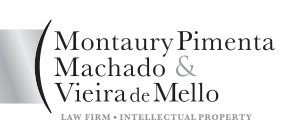On August 13, 2024, the First Panel of the STJ (Superior Court of Justice) ruled that ANVISA – National Health Surveillance Agency – does not have the legal authority to impose restrictions on drug advertising. According to the Court, the regulatory agency lacks the authority to create rules that exceed the provisions of Law 9.294/1996, which regulates the advertising of pharma and related products.
Law No. 9.294, of July 15, 1996, known in Brazil as the "Murad Law", regulates restrictions on the use and advertising of tobacco products (such as cigarettes), alcoholic beverages, medicines, therapies, and agricultural pesticides in Brazil, in accordance with §4 of Article 220 of the Federal Constitution. The aforementioned Law also establishes measures such as banning smoking in closed collective spaces, whether public or private, and imposes restrictions on the advertising of these products, allowing it only at specific times on television and radio.
According to this STJ decision in a lawsuit brought by a pharmaceutical company against ANVISA seeking them to prevent sanctioning for non-compliance with the Resolution of the Collegiate Board (RDC) 96/2008, which regulates advertising, publicity, information, and other practices related to the commercial promotion of medicines, ANVISA had exceeded its authority by imposing restrictions not previously established by law.
The first-instance decision partially favored the pharmaceutical company, suspending the effects of RDC 96/2008, based on the understanding that the regulatory agency had violated the principle of legality by issuing the regulation. At the appeal level, the Federal Court of Appeals upheld this decision, emphasizing that the authority to regulate drug advertising is assigned to federal laws, as provided by the Federal Constitution (CF/88).
The agency appealed to the STJ, arguing that its regulatory role is legitimate and essential to public health, emphasizing that it is responsible for establishing regulations, proposing, monitoring, and implementing policies, guidelines, and actions within its scope of competence, in addition to controlling and supervising the advertising of products under this regulatory regime.
According to the STJ decision, although the regulatory agency has a general authorization to issue regulations that ensure the fulfillment of its duties, specifically with regard to the advertising of products under sanitary control, this competence is more restricted, as defined in Article 7, item XXVI, of Law 9.782/1999, which stipulates that ANVISA’s actions concerning medicines must comply with current legislation.
In other words, although the agency performs a significant regulatory function, it does not have the authority to legislate, but only to detail existing legal norms to ensure their correct and effective application.
In the ruling, Minister Regina Helena Costa, the case's rapporteur judge, emphasized that Article 220 of the Constitution prohibits any form of censorship, but allows federal legislation to impose restrictions on the commercial advertising of products such as tobacco, alcoholic beverages, pesticides, medicines, and therapies, aiming to protect society from health or environmental risks potentially caused by these items.
According to the Minister, advertising restrictions for medicines are established by Law 9.294/1996, supplemented by Decree 2.018/1996, and have immediate application, being mandatory for all, including public administration. However, the Minister states that RDC 96/2008 contains several provisions that exceed the limits set by Law 9.294/1996. Among them are the prohibition of indirect advertising at events and in movies; restrictions on advertisements showing people using medicines, especially if suggesting pleasant qualities such as taste; the requirement for warnings about substances that may cause sedation or drowsiness; and the restriction on the use of certain expressions in the advertising of over-the-counter medicines.
Thus, the Minister highlighted that, by issuing the resolution, ANVISA exceeded its regulatory authority, creating obligations for private parties, which exceeds its role of merely overseeing, monitoring, and controlling advertising practices. With this understanding, the STJ suspended ANVISA’s resolution on advertising and denied the special appeal.
Despite the above decision, which emphasized that ANVISA does not have the authority to create rules that exceed the provisions of Law 9.294/1996, it is important to note that medicines and pharmaceutical products are health-related goods, not merely consumer products. Therefore, their advertising remains subject to all other applicable regulations.
Among these regulations is self-regulation conducted by CONAR – the National Council for Advertising Self-Regulation. Unlike ANVISA’s rules and the previously mentioned laws, CONAR establishes ethical guidelines of a consultative in nature, and, when called upon, issues decisions that lack coercive force, but which are usually followed by advertisers. This has a significant impact on corporate behavior and advertising regulation in Brazil, ensuring that information in advertisements is truthful, honest, and does not mislead consumers.
It is also important to emphasize that, despite the restrictions imposed by the aforementioned decision, ANVISA continues to play a crucial role in protecting and promoting public health in Brazil, including the following key contributions:
- Regulation and Supervision: of the production, distribution, commercialization, and use of medicines, food, cosmetics, health products, and other items that may impact public health, including their quality control and safety.
- Registration and Approval: of medicines, vaccines, health products, and food. No product can be marketed without proper authorization from ANVISA.
- Standardization: develops and publishes standards and regulations to ensure the safety, efficacy, and quality of the products it regulates, covering everything from manufacturing to advertising and marketing.
- Monitoring and Surveillance: continuously monitors and evaluates the safety and efficacy of regulated products, including conducting studies and investigations on adverse effects and enforcing compliance with regulations.
- Education and Information: promotes education and information to the public and healthcare professionals about the safe and effective use of regulated products, as well as risks and precautions.
- Consumer Protection: the agency's role is to protect consumers from potentially harmful products by ensuring that information and warnings are clear and accurate.
As can be seen, it is still ANVISA's duty to ensure that medical and pharmaceutical products available in the Brazilian market comply with public health standards, are safe and effective, and contribute to the health and well-being of the population.






